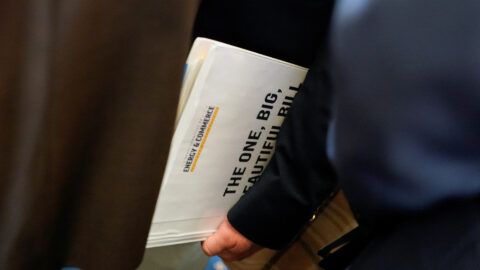The purpose of this blog is to highlight the possible impact of the war in Ukraine on the key points for an investment decision. In short, the conflict reinforces already existing trends. In addition, the global recovery scenario is still holding, but recession risks in Europe have increased.
Geopolitics
The invasion of Ukraine and the market reaction to it underscores that, unlike in previous years, geopolitical events have now become a major factor influencing markets. See our 10 investment themes for this year. The change in the balance of power in a major European country by military means is another indication of the establishment of a multipolar world. The point is not just that there are more power centers, but that the systems are different.
The Western system, based on the rule of law and democracy, is no longer the dominant system. There are always military conflicts, but those with a lasting global significance have not existed for a long time. The relationship between Russia and the West is persistently troubled. Some speak of a new Cold War.
But the focus of geopolitical strategists has been on another for some time: the conflict between China, Taiwan and the United States. As a result, geopolitical risk premiums will be factored into investment decisions in the future.
De-globalization, Green Energy, ESG and Investment
There is also a growing trend toward de-globalization. The conflict between the US and China, among others, has already led to increased investment in the high-tech sector (chips) in each country’s own region. This affects the US, the EU, as well as China. The pandemic has pointed out that global supply chains are fragile, and security of supply of critical goods cannot be guaranteed in the event of a crisis.
The Ukraine crisis, in turn, reinforces the West’s economic disengagement with Russia and strongly underscores the issue of energy security. The motivation to develop alternative energy sources has arguably increased. This applies to both alternative supply routes and green energy production. As if climate change was not enough of a reason to invest heavily in green energy supply, now the issue of supply security is added to the mix. Furthermore, German Chancellor Scholz pointed out that defense spending will increase massively in Germany.
For Germany, this represents a 180-degree turnaround. All four themes (high tech, supply chains, energy, defense) have in common that private and government investment ratios are likely to increase in the trend. This implies higher economic growth and higher government budget deficits in the trend of the coming years compared to the baseline scenario.
Last but not least, the war in Ukraine underlines that the Environment, Social and Governance criteria are not only about combating climate change. The social and governance issues are equally relevant
Extreme risk
Much is still in flux in the Ukraine crisis. What does President Putin want? The main thing seems to be to remove Ukraine from the West’s sphere of influence (prospects for joining the EU and NATO). In that case, a Russian-controlled government would be the ultimate goal. The question of whether Putin wants more, such as control over other Eastern European states, remains open. An escalation beyond the war in Ukraine represents an extreme risk. A more realistic risk lies in an unintended escalation, that is, a mistake.
Sanctions
The West has already responded with sanctions packages. For example, the EU has cited finance, energy (spare parts for production), transportation, export controls and visa policies. In a joint statement Saturday, the US, the U.K., Canada, France, Germany, Italy and the European Commission said they would prevent Russia’s central bank from using its international reserves to undermine broader sanctions.
This means that the Russian Central Bank cannot sell foreign currency reserves to buy rubles. It also means that income in euros and US dollars from the sale of commodities cannot be exchanged for rubles. The leaders also said they would exclude some Russian banks already affected by the sanctions from the Swift system, which would disconnect them from the international financial system and affect their ability to do business.
The Russian Central Bank responded with emergency measures: Raising key interest rates to 20% and capital controls. Restrictions on commodity exports have not been addressed. In the baseline scenario, Russia will continue to export raw materials and energy and will be able to be paid with the interbank financial telecommunications system SWIFT.
Four channels of impact
The extent of the sanctions will certainly have negative consequences for the economy in Russia, and there will also be collateral damage in the West. However, the greater negative consequences could come from four channels of impact that are not addressed by the sanctions. Previous crises show that the indirect effects are often greater than the direct effects:
1) Risk aversion could rise persistently. This affects consumers, companies as well as market participants.
2) If Russia is successful in its strategy, other authoritarian states might also be more inclined to enforce their own goals by means apart from negotiations.
3) If export restrictions in the energy sector are ultimately imposed on Russia, or if Russia reacts to the sanctions with counter-sanctions such as a restriction of energy supplies, a price shock in the commodity sector would increase the risk of stagflation.
4) The potential need for write-downs of Russian assets, possible payment defaults due to exclusion from the SWIFT system and interconnections in the financial sector could amplify the dampening effect on the economy in a risk scenario.
Global recovery scenario impaired, but still holding up
The direction of impact of the crisis on the economy is comparatively easy to estimate; the uncertainty lies in the extent to which:
1) Inflation rates will be higher compared to the original baseline scenario. This is because commodity prices (energy, metals, food) have continued to rise in recent days. The phase of high inflation rates will now last even longer. However, the expectation that inflation will fall in the medium term (next year) holds.
2) The resulting loss of purchasing power means lower economic growth than in the base scenario. However, the expectation for a continuation of the “recovery” phase of the economy on a global level holds as long as there is no commodity price shock. Private consumption in the service sector and hours worked are still well below the pre-pandemic trend. In Europe, however, the risks of recession have increased.
3) Central banks are being hampered in exiting the ultra-expansionary monetary policy stance. Central banks have already been confronted with the conflicting goals of fighting inflation vs. stability in the economic, financial and sovereign debt areas. Due to the surprisingly high inflation rates, there may be increased pass-through effects (companies may pass on costs) as well as rising inflation expectations. Central banks have so far responded with signals for earlier and faster key rate hikes. The Ukraine crisis has intensified this trade-off. Key rate hikes are still likely, but the risk for hikes to a restrictive interest rate level to cool the economy has decreased.
Global recovery scenario impaired, but it still holds
Long story short. First, as long as a recession can be avoided in the absence of a commodity price shock, the outlook for risk assets remains generally positive. Second, existing trends will be reinforced.
The themes, geopolitics, deglobalization and stagflation risk are putting pressure on valuations such as the price-earnings ratio because risk premiums are rising / have risen. At the same time, the topics of more green energy and higher investment rates have a supportive effect on long-term growth prospects.
Legal note:
Prognoses are no reliable indicator for future performance.
Legal disclaimer
This document is an advertisement. Unless indicated otherwise, source: Erste Asset Management GmbH. The language of communication of the sales offices is German and the languages of communication of the Management Company also include English.
The prospectus for UCITS funds (including any amendments) is prepared and published in accordance with the provisions of the InvFG 2011 as amended. Information for Investors pursuant to § 21 AIFMG is prepared for the alternative investment funds (AIF) administered by Erste Asset Management GmbH pursuant to the provisions of the AIFMG in conjunction with the InvFG 2011.
The currently valid versions of the prospectus, the Information for Investors pursuant to § 21 AIFMG, and the key information document can be found on the website www.erste-am.com under “Mandatory publications” and can be obtained free of charge by interested investors at the offices of the Management Company and at the offices of the depositary bank. The exact date of the most recent publication of the prospectus, the languages in which the fund prospectus or the Information for Investors pursuant to Art 21 AIFMG and the key information document are available, and any other locations where the documents can be obtained are indicated on the website www.erste-am.com. A summary of the investor rights is available in German and English on the website www.erste-am.com/investor-rights and can also be obtained from the Management Company.
The Management Company can decide to suspend the provisions it has taken for the sale of unit certificates in other countries in accordance with the regulatory requirements.
Note: You are about to purchase a product that may be difficult to understand. We recommend that you read the indicated fund documents before making an investment decision. In addition to the locations listed above, you can obtain these documents free of charge at the offices of the referring Sparkassen bank and the offices of Erste Bank der oesterreichischen Sparkassen AG. You can also access these documents electronically at www.erste-am.com.
Our analyses and conclusions are general in nature and do not take into account the individual characteristics of our investors in terms of earnings, taxation, experience and knowledge, investment objective, financial position, capacity for loss, and risk tolerance. Past performance is not a reliable indicator of the future performance of a fund.
Please note: Investments in securities entail risks in addition to the opportunities presented here. The value of units and their earnings can rise and fall. Changes in exchange rates can also have a positive or negative effect on the value of an investment. For this reason, you may receive less than your originally invested amount when you redeem your units. Persons who are interested in purchasing units in investment funds are advised to read the current fund prospectus(es) and the Information for Investors pursuant to § 21 AIFMG, especially the risk notices they contain, before making an investment decision. If the fund currency is different than the investor’s home currency, changes in the relevant exchange rate can positively or negatively influence the value of the investment and the amount of the costs associated with the fund in the home currency.
We are not permitted to directly or indirectly offer, sell, transfer, or deliver this financial product to natural or legal persons whose place of residence or domicile is located in a country where this is legally prohibited. In this case, we may not provide any product information, either.
Please consult the corresponding information in the fund prospectus and the Information for Investors pursuant to § 21 AIFMG for restrictions on the sale of the fund to American or Russian citizens.
It is expressly noted that this communication does not provide any investment recommendations, but only expresses our current market assessment. Thus, this communication is not a substitute for investment advice.
This document does not represent a sales activity of the Management Company and therefore may not be construed as an offer for the purchase or sale of financial or investment instruments.
Erste Asset Management GmbH is affiliated with the Erste Bank and austrian Sparkassen banks.
Please also read the “Information about us and our securities services” published by your bank.



